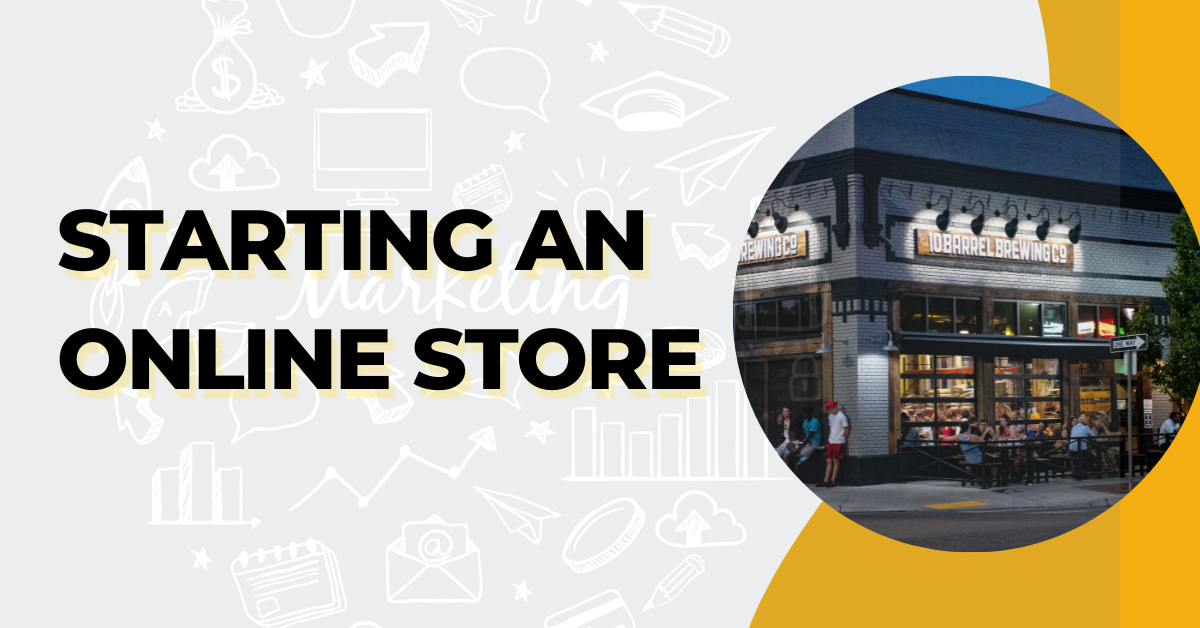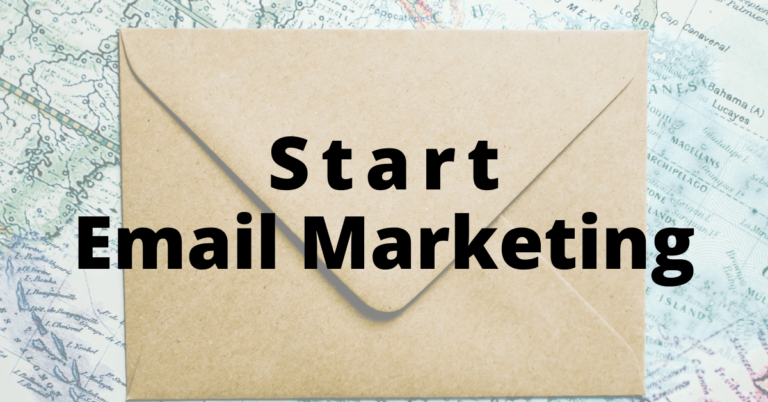An online store can be a great source of extra income, and the popularity of online shopping means that people are constantly looking for new stores to shop at. To get started with your online store, you’ll need to create an eCommerce website and then choose which products to sell. Although there are several different kinds of stores you can open, this guide will walk you through the essentials of starting an online store so that you can launch your site successfully and start making money as soon as possible.
Research & Defining your target audience
If you’re starting an online store, the first thing you need to do is figure out who your target audience is. To do this, you’ll need to research your competition and niche.
To get started, here are some questions to ask yourself as you research your target audience:
- What demographic is my potential customer?
- How old are they?
- What gender are they?
- What are their interests?
- Do they have any specific needs or preferences?
- Does my product/service address any of these needs or preferences?
- When would they typically purchase my product/service (e.g., holidays)?
- Where do they typically purchase my product/service (e.g., mall)?
Once you know who your target audience is, you can start thinking about what products or services you want to offer them. Keep in mind that your target audience should be able to find your online store easily, so make sure your website is optimized for search engines…
Look at the Competition
The first step is to take a look at the competition. Who are your potential customers? What do they want? How can you reach them? Use social media marketing to start conversations with potential customers and get their feedback on what products they would like in your store.
Look at other stores that offer similar products and see what features their sites have that yours doesn’t (or vice versa).
Once you’ve found some promising competitors, pay attention to how often they update their site or add new content – this will give you an idea of how much time and effort goes into running a successful online store.
It’s important to keep up with the latest trends in your industry so make sure you’re following relevant blogs and websites, as well as checking out product reviews.
Where to find products
When it comes to starting an online store, one of the first things you need to do is find products to sell. This can seem like a daunting task, but there are a few different ways you can go about it.
One way is by looking for suppliers on sites like Alibaba.
Another option is finding private label rights resellers on sites
Another good way to get started with your product line is by sourcing from wholesalers who sell in large quantities that might not be available in retail stores near you.
Lastly, there are plenty of websites out there where entrepreneurs buy wholesale goods and then resell them for profit on their sites.
Decide Where to Sell Online
Another step in starting an online store is deciding where to sell your products. There are a few different options available,
Choosing the right one for you will depend on the type of business you have, how much time you have, and how much money you want to spend upfront.
The most popular option for new businesses is to sell through third-party sites like Etsy, Shopify & Amazon.
It can be less work than building your website because these sites offer templates and tools that allow entrepreneurs to quickly create stores without any technical knowledge.
Note: You can also create your website which we have mentioned below.
Selecting your eCommerce platform
One of the first decisions you will have to make is which e-commerce platform to use. There are a few different options available, and each has its pros and cons.
Shopify is a popular e-commerce platform that offers a user-friendly interface, plenty of themes and apps to customize your store, and powerful tools for managing inventory, shipping, and payments. Plus, getting started with Shopify is relatively easy.
you can also use WordPress/woo-commerce …
Naming Your Company
Your company name is important—it’s how customers will find you online and it will be your first impression.
You want a name that is memorable, easy to spell, and relevant to your product or service.
Here are a few tips for choosing the perfect name for your online store:
- Keep it short and sweet. Long names are hard to remember and hard to type.
- Make sure the domain name is available. You want customers to be able to find you easily online.
- Use keywords in your name. This will help customers find you when they’re searching online.
- Avoid using hyphens or numbers in your domain name—these can be confusing for customers.
- Pick a word that describes what you do.
- Check to see if there are any other businesses with the same name as yours, so you don’t run into any issues down the road.
- When picking a domain name, try not to use more than two words in one phrase (e.g., funky-fresh-designs). It might be too difficult for customers to read or remember.
Finding Suppliers
One of the most important steps in starting an online store is finding the right suppliers. Not only do you need to find suppliers who can provide you with the products you want to sell, but you also need to make sure that they are reliable and that you can work with them on a long-term basis. can. Here are some tips for finding the right suppliers for your online store.
- Google Search – This seems obvious, but don’t forget it! A quick search on Google will bring up many options for suppliers in any category you can think of. Some may be more expensive than others, some may have better ratings than others, etc., so do some research before deciding which one to go with.
- Craigslist – Another easy way to find potential suppliers is to post an ad on Craigslist or check the site’s local listings. These ads often contain information about what types of items are being sold as well as contact information for potential buyers/sellers.
- Small Business Development Center – Many counties in North America have a Small Business Development Center (SBDC) funded by both private and public organizations. The goal of these centers is to help local small businesses grow and succeed, so your first step should be to contact your local SBDC to find reliable suppliers and manufacturers.
- Find suppliers on Alibaba. From there, you’ll be able to search for suppliers based on product type or other criteria. I recommend using Alibaba once you find a supplier that meets all your needs.
Tips for a Successful Website Launch
- Plan your website launch well in advance. This will give you time to take care of all the details and ensure a smooth launch.
- Choose a good domain name for your website. It should be short, easy to remember, and relevant to your business.
- Find a reliable web hosting provider that can offer you the features you need at a price you can afford.
- Create interesting and useful content for your website. This will help attract visitors and keep them coming back for more.
- Use effective SEO techniques to make sure your website is easily found by potential customers.
- Promote your website through social media, online ads, and other marketing channels.
- Make your website mobile-friendly so it can reach more people on their phones and tablets.
- Keep tabs on analytics reports to see how users are interacting with your site.
- Don’t neglect customer service! Your goal is to create a great user experience, so provide top-notch customer service any time someone needs it!
Choosing Payment Gateways
If you’re starting an online store, you’ll need to choose a payment gateway. A payment gateway is a service that allows you to accept credit card payments online.
There are many different payment gateways available, so it’s important to choose one that’s right for your business. Here are a few things to consider when choosing a payment gateway:
-How easy is it to set up?
-What are the fees?
-Is the gateway reliable?
-Does it offer fraud protection?
-What types of payments does it accept?
-What countries does it operate in?
-Does it integrate with your shopping cart software? –
-Is there customer support? The last thing anyone wants is being left without support after getting hacked and losing thousands of dollars in revenue! It’s always good to know that there will be someone on the other end willing and able to help if something goes wrong.
Starting an Online Store – Creating product listings
Starting an Online Store to get started, you’ll need to create product listings on your website. This involves taking photos of your products, writing descriptions, and setting prices. You’ll also need to decide which payment methods you’ll accept and how you’ll ship your products.
Marketing is Important – How Will People Find out about Your Product?
To have a successful online store, you need to make sure that people are aware of your product.
Marketing is key in driving traffic to your website and generating sales
There are several ways to market your online store, including SEO, social media, and email marketing.
The first step is to make sure that your online store is easy for people to find by entering keywords related to your products into the search engine of their choice…
Next, you can try social media advertising or email marketing campaigns.
While it is important to utilize all of these channels, it is also important to focus your efforts on the channels that will be most effective for your business.
For example, if you are selling products that are targeted toward a younger audience, then you will want to focus on social media marketing. If you are selling products that are targeted toward a more mature audience, then you will want to focus on email marketing.
The goal of marketing is to generate awareness and attract potential customers.
The best way to do this is by choosing a marketing channel that matches the customer base you are targeting.
Promoting your store on social media platforms
If you’re promoting your online store on social media, there are a few things you should keep in mind.
First, make sure you’re using high-quality images. People are visual creatures, and they’ll be more likely to click on your store if they see attractive visuals.
Second, use engaging language in your posts and avoid sounding too sales-y.
You want people to be interested in what you’re selling, not turned off by a hard sell.
Finally, be sure to post regularly and mix up the content you’re sharing. No one wants to see the same thing over and over again, so switch things up to keep people engaged.
If you’re unsure of what to share, consider posting about trending topics that relate to your industry or products.
Test Different Packaging Options
No matter what you’re selling, the packaging is one of the most important aspects of your product. The right packaging will not only protect your product but will also make it more appealing to customers.
You should always test out different options and see which ones work best for your particular business. In addition, you should consider the cost of packaging as well as the resources needed to create it.
Fulfilling orders and shipping
You’ve done it! You’ve finally decided to take the plunge and start your online store. Congratulations! But now what?
Once you’ve built your store and added products, you’ll need to start fulfilling orders and shipping them out to your customers. Here’s everything you need to know about fulfilling orders and shipping for your new online store.
1) Set up shipping rates – one of the first things you’ll want to do is set up a system for handling shipping rates. If you’re not sure how much something should cost to ship, check your competition’s prices and see if they are reasonable.
2) Find a good fulfillment service – this is probably the most important thing that many people forget about when starting their own business. Luckily there are plenty of fulfillment services out there that will allow you to ship from home at reasonable rates with no minimums or commitments.



